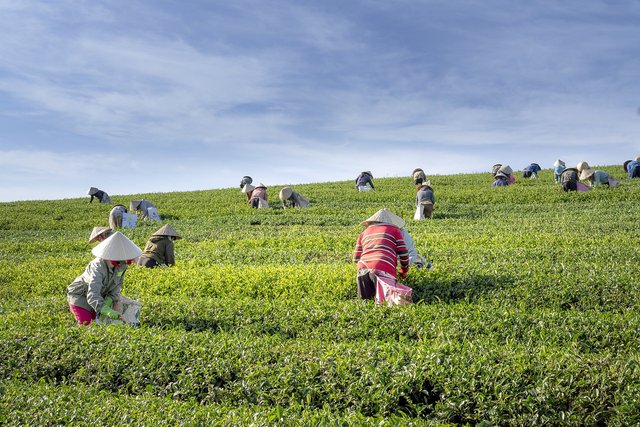
Greetings to all my dear and esteemed readers of this platform, in this opportunity I will be sharing with you how the farm worker has been exploited for many years, in spite of the fact that the Venezuelan legal regulation or laws have always protected him, this has never been complied with and the owners of large extensions of land have exploited the farm labor force at their whim.
The use of the land and the exploitation of animals represents a primary activity of human beings, which arose as a consequence of their need for subsistence. In the beginning, primitive man was dedicated to gathering, hunting or fishing, then with the discovery that most of nature's products could be cultivated, he became a farmer, thus changing his condition from nomadic to sedentary, thus initiating the exploitation of the land and its resources. As this exploitation became more extensive, and covered larger areas, it triggered the growth of the labor force in this activity, giving rise to the first form of work in the countryside through the use of slave labor or other forms of subjugation of man. Later, in the Middle Ages, the Feudal System established that the serf or vassal worked the land of the Feudal Lord in exchange for protection and means of subsistence.
Centuries later, the Industrial Revolution originated the agrarian revolution that began in Europe, where industries required a greater quantity of raw materials, which led to the incorporation into the fields of a large number of salaried men in charge of this work, a fact that set the precedent for the regulation of rural labor. This form of service provision in the countryside is called rural work, which due to its own particularities, represented by the environment where the work itself is performed, which can only be carried out in the countryside, in full contact with nature, gives it a characteristic stamp, differentiating it from ordinary labor regulation and includes it within what labor legislation has called special labor regimes.

Source
The specialty of these legal systems is based on accentuated normative differences in the ordinary regulation of the labor relationship, taking into account the particular condition of the subjects involved, the circumstances of the work itself or the environment in which it is carried out. In this sense, rural work is a term applied to workers dedicated to the cultivation of the land and to those who perform activities of that nature, framing its particular exercise to the latter category; that is to say, to the circumstance in which these persons perform work that can only be performed in the agrarian environment.
However, in Venezuela, although this type of activity has been subject to legal regulation since 1936 by the various labor laws enacted, they have not been able to fulfill their purpose: the true and effective protective protection of the economically weak represented by the rural worker, who is not only subjected to the precarious living conditions, but also to the continuous violations of the regulatory norms of this labor regime, because he lacks sufficient freedom to defend his interests, while he is in the state of subordination characteristic of the labor relationship, where in most cases his economic need obliges him to agree to discriminatory conditions.

- Bernardoni de Govea, M. (2007). Comentarios a la Ley Orgánica del Trabajo y su Reglamento. Librería J. Rincón G, C.A. Barquisimeto, Venezuela.
- Espinoza Prieto, A. (2000). Los Derechos Laborales Regulados por la Constitución de la República Bolivariana de Venezuela. Editorial Buchivacoa. Caracas, Venezuela.


Hello friend @carlir.
In the agricultural work is the main engine for the country to move forward in terms of economic problems, being this the real situation faced it is pertinent that the legislation goes to that point of the productive sectors, bringing solutions and benefits, but not any kind of damage, is my perspective.
Downvoting a post can decrease pending rewards and make it less visible. Common reasons:
Submit
Hello dear friend @carlir, the Venezuelan legislation takes into account rural employees, but it became common ignorance of their rights, currently because of the serious economic problems that the country is going through, Many rural workers are emigrating to other directions or jobs, the landowner was threatened and began to improve wages with the payment of bonuses that do not influence the time of a wage settlement, but that are significant for the worker.
So long, have a great start to the week.
Downvoting a post can decrease pending rewards and make it less visible. Common reasons:
Submit
@tipu curate 3
Downvoting a post can decrease pending rewards and make it less visible. Common reasons:
Submit
Upvoted 👌 (Mana: 2/5) Get profit votes with @tipU :)
Downvoting a post can decrease pending rewards and make it less visible. Common reasons:
Submit